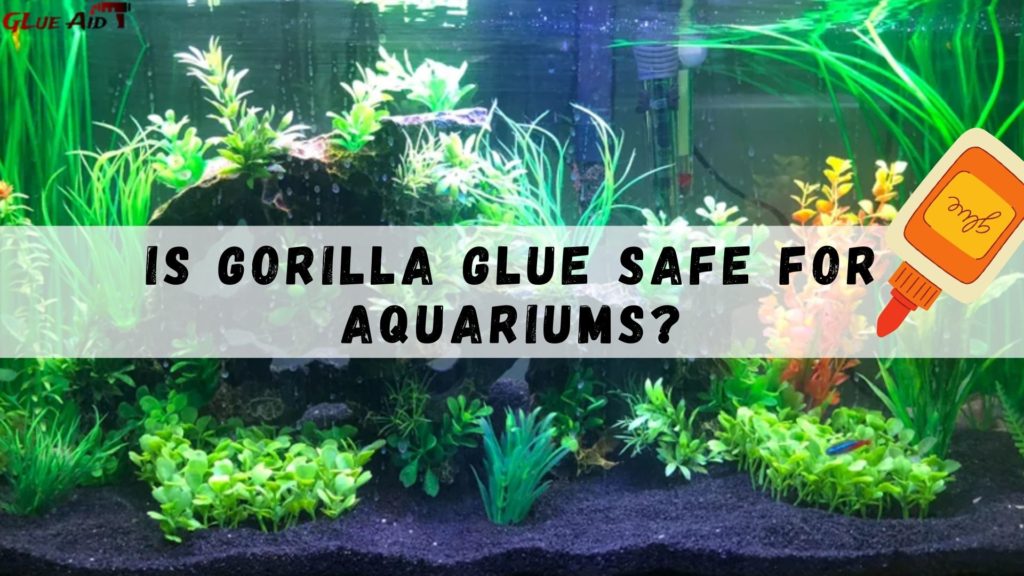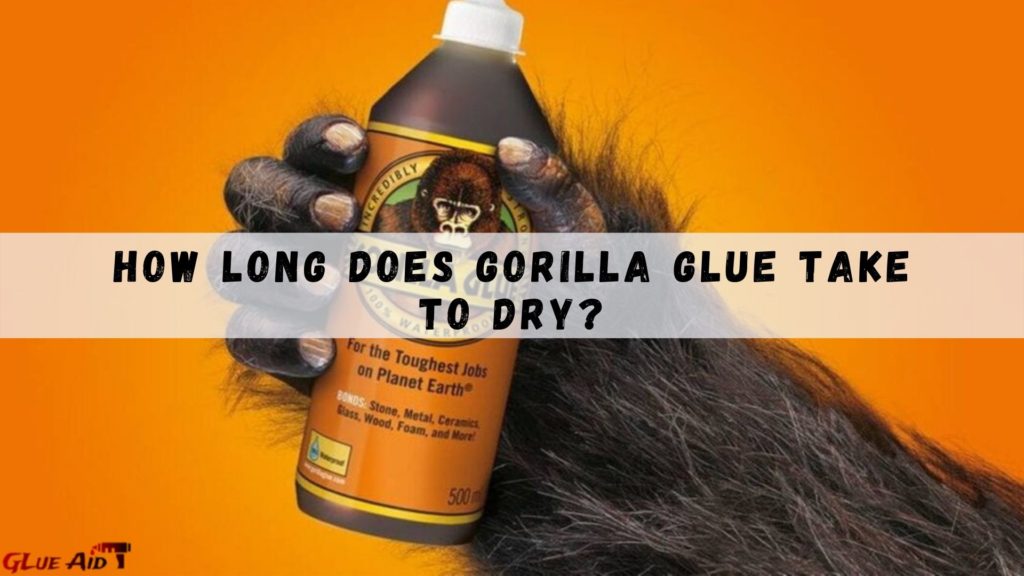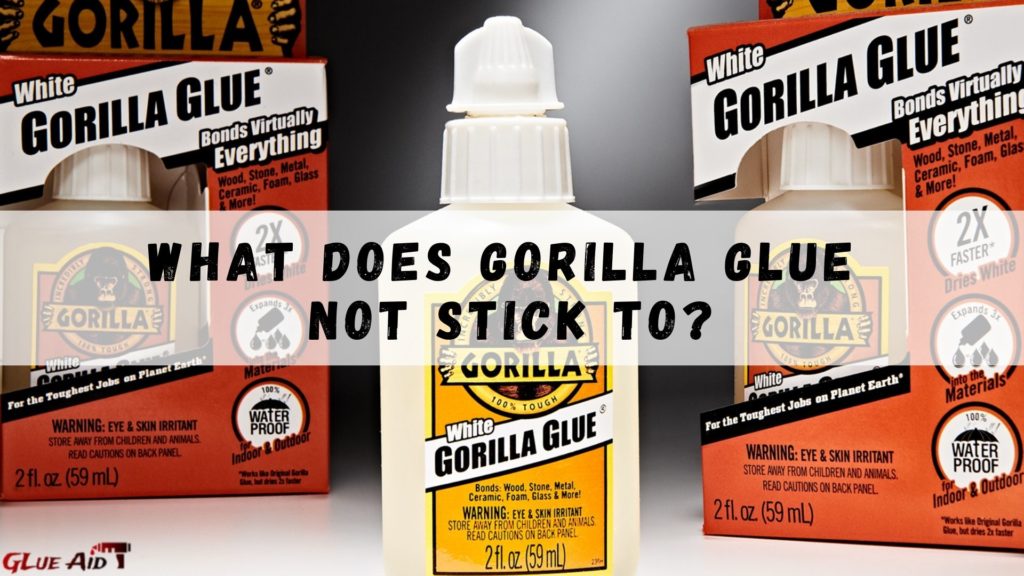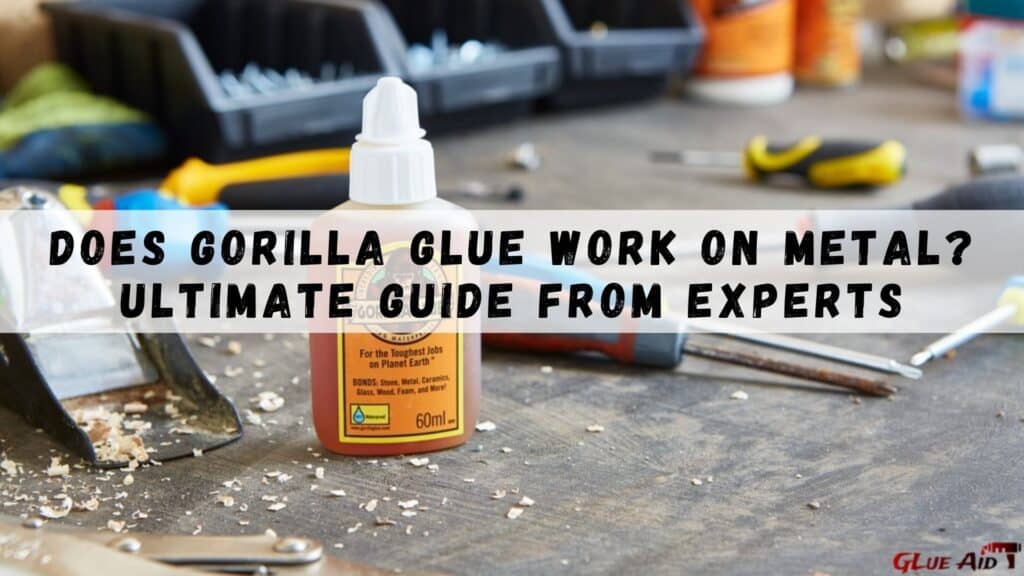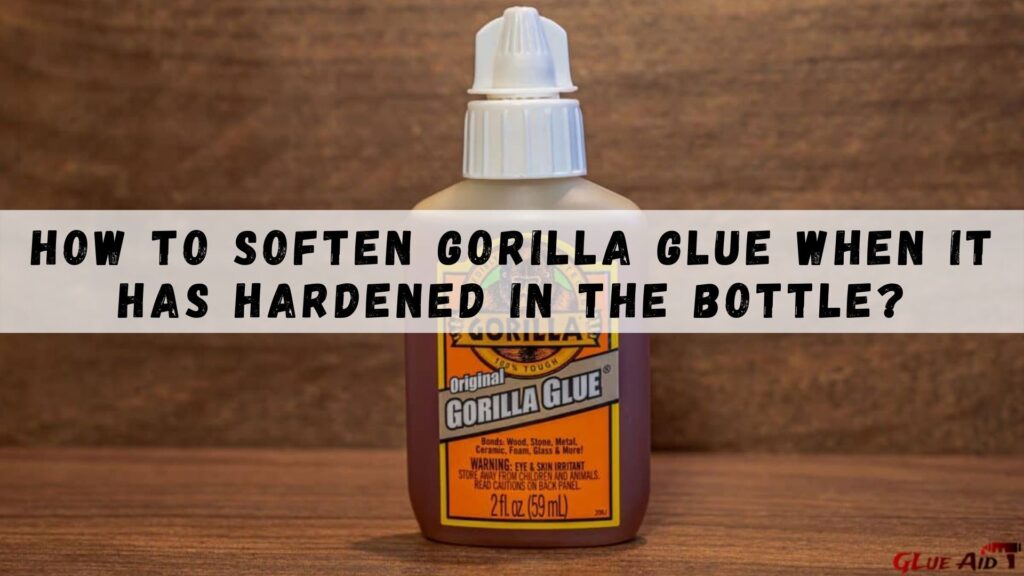Is Gorilla Glue safe for aquariums? This is a question that many people have, and the answer is not always straightforward. There are different types of gorilla glue, some of which are safe for aquariums and some of which are not.
In this discussion, we will take a closer look at gorilla glue and its safety for use in aquariums. We will also discuss the different types of gorilla glue and their respective safety levels. By the end of this opinion, you will have a better understanding of whether or not gorilla glue is safe for your aquarium.
Table of Contents
What is Gorilla Glue and What are its Uses

Gorilla Glue is a type of adhesive that is used for a variety of purposes. It is a strong, durable glue that can be used on a variety of surfaces. Gorilla Glue is most commonly used to bond wood, metal, glass, and plastics.
It can also be used to glue together different types of materials that would otherwise be difficult to bond. Gorilla Glue is known for its strength and versatility, making it a popular choice for many different projects.
There are two main types of Gorilla Glue: original Gorilla Glue and Gorilla Super Glue. Original Gorilla Glue is a polyurethane-based adhesive, while Gorilla Super Glue is an acrylic-based adhesive.
Is Gorilla Glue Safe for Aquariums

Gorilla Glue is a powerful adhesive that can bond almost anything together. It’s strong, waterproof, and versatile, making it a popular choice for do-it-yourself projects around the home. But is Gorilla Glue safe to use around fish tanks? The short answer is no. Gorilla Glue contains ingredients that can be harmful to fish, including polyurethane and cyanoacrylate.
In addition, the glue can release harmful fumes when it dries, potentially causing respiratory problems in fish. For these reasons, it’s best to avoid using Gorilla Glue in aquariums.
If you need to repair a leak or bond two pieces of equipment together, there are many other adhesives on the market that are specifically designed for use in aquatic environments.
How to Use Gorilla Glue Safely on Fish Tanks

If you absolutely must use Gorilla Glue in an aquarium, there are a few precautions you can take to minimize the risk to your fish.
First, make sure that the area you’re working in is well-ventilated. The fumes from the glue can be harmful to both humans and fish, so it’s important to work in an area with plenty of fresh air.
Second, use as little glue as possible. A little Gorilla Glue goes a long way, so there’s no need to use it a lot.
Third, allow the glue to cure for at least 24 hours before adding water to the tank. This will give the glue time to set and will minimize the risk of fumes being released into the water.
Finally, keep a close eye on your fish for the next few days. If any of them seem to be having difficulty breathing or if they develop any other strange symptoms, remove them from the tank immediately and contact a veterinarian.
Gorilla Glue is a powerful adhesive that can be used for a variety of purposes. However, it is not safe to use in aquariums due to the harmful ingredients it contains. If you absolutely must use Gorilla Glue in an aquarium, there are a few precautions you can take to minimize the risk to your fish.
What are the Risks of Using Gorilla Glue in an Aquarium

Gorilla Glue is a powerful adhesive that can be used for a variety of purposes. However, it is not safe to use in aquariums due to the harmful ingredients it contains.
In addition, the glue can release harmful fumes when it dries, potentially causing respiratory problems in fish. For these reasons, it’s best to avoid using Gorilla Glue in aquariums.
If you absolutely must use Gorilla Glue in an aquarium, there are a few precautions you can take to minimize the risk to your fish.
First, make sure that the area you’re working in is well-ventilated. The fumes from the glue can be harmful to both humans and fish, so it’s important to work in an area with plenty of fresh air.
Second, use as little glue as possible. A little Gorilla Glue goes a long way, so there’s no need to use it a lot. Third, allow the glue to cure for at least 24 hours before adding water to the tank. This will give the glue time to set and will minimize the risk of fumes being released into the water.
Finally, keep a close eye on your fish for the next few days. If any of them seem to be having difficulty breathing or if they develop any other strange symptoms, remove them from the tank immediately and contact a veterinarian.
Alternatives to Using Gorilla Glue in an Aquarium
If you need to repair a leak or bond two pieces of equipment together, there are many other adhesives on the market that are specifically designed for use in aquatic environments.
There are a variety of aquarium-safe silicone sealants available that can be used to repair leaks. These sealants are safe to use around fish and will not release harmful fumes.
If you need to bond two pieces of equipment together, there are a variety of aquarium-safe epoxies available. These epoxies are safe to use around fish and will not release harmful fumes.
Is Gorilla Glue Safe for Aquarium Plants?
Gorilla glue is a Water Resistant adhesive that is made from polyurethane. This adhesive can be used on a variety of surfaces, including plants. Gorilla glue is said to be safe for aquarium plants; however, some users have experienced adverse effects when using this adhesive on plants.
When using gorilla glue, it is important to avoid getting adhesive on the leaves of the plant. If the adhesive comes in contact with the leaves, it can cause them to curl and turn black. If gorilla glue is used in an aquarium with live plants, it is important to test it on a small area of the plant first to make sure there are no adverse reactions.
What Kind of Glue is Safe for Aquarium Plants?

When it comes to aquarium plants, many people want to know what kind of glue is safe for them. The answer to that question is not simple, as many types of glue are available on the market. However, most glues can be classified into two categories: water-based and solvent-based.
Water-based glues are the safer option for aquarium plants, as they are less likely to cause any damage. These glues typically contain latex or acrylic, which can be harmful to fish if ingested. However, they will not damage the plants if they come into contact with them.
Solvent-based glues are not as safe for aquarium plants, as they can contain harmful chemicals that can damage or even kill the plants.
FAQ About Is Gorilla Glue Safe for Aquariums or Not
Is the Common Super Glue Safe for Use in Aquariums?
The Common Super Glue is not safe for use in aquariums because it can harm the fish. The adhesive can pollute the water and damage the gills of the fish, which can lead to death.
Does Gorilla Glue Leach into Water?
Gorilla Glue is composed of an acrylic adhesive and a polyurethane resin. It is not Water Soluble, and will not leach into the water.
Can you Super Glue Plants Underwater?
The use of superglue to adhere plants to substrates underwater is a common practice among horticulturists. The adhesive properties of superglue make it an ideal choice for this purpose, as it forms a strong bond that can withstand a watery environment. While superglue is an effective way to attach plants to substrates, it is important to note that it is not a permanent solution.
Is Gorilla Glue Aquarium Safe?
There is no straightforward answer to this question as the safety of Gorilla Glue for use in aquariums depends on a number of factors, such as the composition of the particular adhesive and the specific tank setup. Generally speaking, though, Gorilla Glue is not considered aquarium safe, as even small amounts can be deadly to fish and other aquatic creatures. The adhesive can also cause damage to tank silicone seals and filters, leading to leaks and other problems.
What Gorilla Glue is Safe for Aquariums?
The two types of gorilla glue that are safe for aquariums are the white Gorilla Glue and the clear Gorilla Glue. They are both cyanoacrylate adhesives, which means they are fast-acting, high-strength glues that form a waterproof bond. Because they are both waterproof, they are perfect for use in aquariums, where leaks can be disastrous.
Is Gorilla Glue Gel Safe for Aquariums?
It is likely that gorilla glue is not safe for this purpose, as it is a water-based adhesive. The ingredients in gorilla glue, such as polyvinyl acetate and water, can cause problems in an aquatic environment. For example, the water in the adhesive can dissolve the silicone sealant on aquarium fixtures and seals, potentially leading to leaks.
Is Gorilla Glue Silicone Safe for Fish?
Some silicones are safe for fish, while others are not. In general, however, silicones are considered to be relatively safe for use around fish. They are non-toxic and non-irritating, and they generally do not cause any adverse reactions in fish.
The Bottom Line
In conclusion, gorilla glue is safe for aquariums when used in moderation. It is a great adhesive for attaching artificial plants, rocks, and other decorations to the aquarium. However, it is important to avoid getting the glue in the water, as it can be harmful to fish and other aquatic life.
Relevant Resource:
